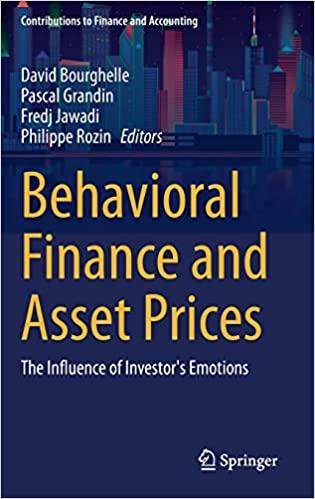Question
As a newly minted MBA, you've taken a management position with Exotic Cuisines, Inc., a restaurant chain that just went public last year. The company's
As a newly minted MBA, you've taken a management position with Exotic Cuisines, Inc., a restaurant chain that just went public last year. The company's restaurants specialize in exotic main dishes, using ingredients such as alligator, buffalo, and ostrich. A concern you had going in was that the restaurant business is very risky. However, after some due diligence, you discovered a common misperception about the restaurant industry. It is widely thought that 90 percent of new restaurants close within three years; however, recent evidence suggests the failure rate is closer to 60 percent over three years. So, it is a risky business, although not as risky as you originally thought.
During your interview process, one of the benefits mentioned was employee stock options. Upon signing your employment contract, you received options with a strike price of $75 for 10,000 shares of company stock. As is fairly common, your stock options have a three-year vesting period and a 10-year expiration, meaning that you cannot exercise the options for a period of three years, and you lose them if you leave before they vest. After the three-year vesting period, you can exercise the options at any time. Thus, the employee stock options are European (and subject to forfeit) for the rst three years and American afterward. Of course, you cannot sell the options, nor can you enter into any sort of hedging agreement. If you leave the company after the options vest, you must exercise within 90 days or forfeit.
Exotic Cuisines stock is currently trading at $38.47 per share, a slight increase from the initial offering price last year. There are no market traded options on the company's stock. Because the company has only been traded for about a year, you are reluctant to use the historical returns to estimate the standard deviation of the stock's return. However, you have estimated that the average annual standard deviation for restaurant company stocks is about 55 percent. Since Exotic Cuisines is a newer restaurant chain, you decide to use a 60 percent standard deviation in your calculations. The company is relatively young, and you expect that all earnings will be reinvested back into the company for the near future. Therefore, you expect no dividends will be paid for at least the next 10 years. A three-year Treasury note currently has a yield of 5.4 percent, and a 10-year Treasury note has a yield of 6.1 percent.
1.You're trying to value your options. What minimum value would you assign? What is the maximum value you would assign?
Step by Step Solution
There are 3 Steps involved in it
Step: 1

Get Instant Access to Expert-Tailored Solutions
See step-by-step solutions with expert insights and AI powered tools for academic success
Step: 2

Step: 3

Ace Your Homework with AI
Get the answers you need in no time with our AI-driven, step-by-step assistance
Get Started


